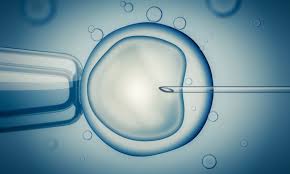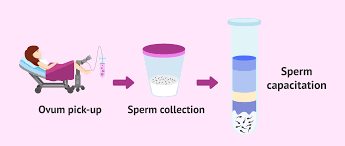What is In vitro fertilization (IVF) ?

In vitro fertilization (IVF) is a complex and transformative technology that has revolutionized reproductive medicine. This prompt aims to explore the multifaceted aspects of IVF, delving into its scientific principles, clinical applications, ethical considerations, and societal impact.
In Vitro Fertilization (IVF) is a complex and often life-changing fertility treatment. It involves the fertilization of an egg by a sperm outside of the body, in a laboratory setting. Here’s a breakdown of the process:
Table of Contents
Stimulation
Medication: Women take fertility medications to stimulate the production of multiple eggs.
Monitoring: Doctors closely monitor the egg development through ultrasound and blood tests.
Egg Retrieval
Procedure: A small needle is inserted through the vagina to collect the mature eggs from the ovaries.
Anesthesia: This procedure is usually done under sedation.
Sperm Collection

Male Partner: Sperm is collected through masturbation or through a procedure called a testicular sperm extraction (TESE).
Donor Sperm: Sperm can be obtained from a donor if desired.
Fertilization

Insemination: Sperm and eggs are combined in a laboratory dish.
Incubation: The eggs are incubated for approximately 18-24 hours.
Embryo Development
Monitoring: The embryos are monitored for growth and development under a microscope.
Selection: The healthiest embryos are selected for transfer.
Embryo Transfer
Procedure: The selected embryos are transferred into the woman’s uterus using a thin catheter.
Anesthesia: This procedure is typically done without anesthesia.
Pregnancy Test
Two Weeks Later: A pregnancy test is administered to determine if the transfer was successful.
Benefits of IVF
Treatment for Infertility: IVF can help couples who struggle to conceive naturally due to various factors, including blocked fallopian tubes, endometriosis, and low sperm count.
Genetic Testing: IVF allows for preimplantation genetic testing (PGT) which can screen embryos for genetic disorders.
Frozen Embryos: Remaining embryos can be frozen for future use, giving couples options for future pregnancies.
Importance of IVF
In Vitro Fertilization (IVF) is a revolutionary technology that has provided hope and families to millions of people worldwide. Its importance lies in addressing a wide range of challenges related to infertility and giving individuals the opportunity to experience parenthood.
Overcoming Infertility
For couples struggling with infertility: IVF offers a powerful solution for couples who are unable to conceive naturally due to various factors like blocked fallopian tubes, endometriosis, low sperm count, or unexplained infertility.
For individuals seeking parenthood: It enables single individuals, same-sex couples, and LGBTQ+ individuals to build their families through assisted reproductive technologies.
Genetic Testing & Screening
Preimplantation Genetic Testing (PGT): IVF allows for genetic screening of embryos before implantation, enabling the selection of embryos free from specific genetic disorders. This provides peace of mind and reduces the risk of passing on inherited diseases to future generations.
Avoiding inherited diseases: PGT can help prevent diseases like cystic fibrosis, sickle cell anemia, and Huntington’s disease, offering a chance for healthy pregnancies.
Expanding Family Building Options
Egg freezing: IVF allows women to freeze their eggs for future use, preserving their fertility for later use. This is particularly important for individuals who are delaying parenthood due to career or personal reasons.
Donor eggs and sperm: IVF makes it possible for individuals to utilize donor eggs or sperm to achieve pregnancy, providing options for those with infertility issues or specific genetic conditions.
Advancements in Reproductive Medicine
Continuous research & development: IVF research continues to evolve, leading to improved techniques, enhanced success rates, and safer treatments. This ongoing progress ensures that IVF remains a viable and increasingly effective option for individuals seeking parenthood.
Social & Emotional Impact
Fulfillment of a life-long dream: IVF offers the chance for individuals to experience the joy of parenthood, fulfilling a lifelong desire for many.
Building strong families: IVF empowers individuals and couples to create their own families, fostering love, connection, and shared experiences.
Considerations
Costly: IVF is a significant financial investment.
Emotionally Demanding: The process can be stressful and emotionally draining.
Success Rates: Success rates vary depending on individual factors and the clinic performing the treatment.
It’s important to note: IVF is a complex process, and it’s essential to consult with a fertility specialist to understand the risks, benefits, and success rates specific to your individual circumstances.
Frequently Asked Questions(FAQ)
What is In vitro fertilization (IVF) ?
In vitro fertilization (IVF) is a complex and transformative technology that has revolutionized reproductive medicine. This prompt aims to explore the multifaceted aspects of IVF, delving into its scientific principles, clinical applications, ethical considerations, and societal impact.
What are the benefits of IVF?
The benefits of IVF,
Treatment for Infertility: IVF can help couples who struggle to conceive naturally due to various factors, including blocked fallopian tubes, endometriosis, and low sperm count.
Genetic Testing: IVF allows for preimplantation genetic testing (PGT) which can screen embryos for genetic disorders.
Frozen Embryos: Remaining embryos can be frozen for future use, giving couples options for future pregnancies.
What are the importances of In vitro fertilization (IVF) ?
The importances of In vitro fertilization ,
Overcoming Infertility
Genetic Testing & Screening
Expanding Family Building Options
Related Arrticles

